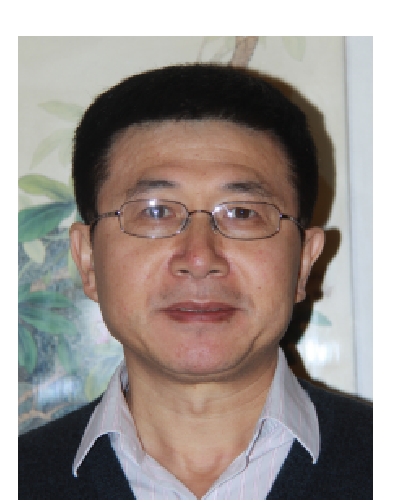Invited Speakers

Prof. Yaxin Bi
Ulster University, UK
Senior Fellow of the Higher Education Academy, UK
Yaxin Bi is a Professor in the School of Computing at Ulster University and a core member of the Artificial Intelligence Research Centre within the School. Yaxin°Įs research interests are in the fields of machine learning and ensemble learning in conjunction with the Dempster-Shafer theory of evidence. He has pioneered ensemble approaches for combining multiple classifiers using Dempster°Įs rule of combination, as well as measuring the diversity impact of evidential classifiers with varying metrics. His research extends to the development of data analytics and decision-making methods under uncertainty to tackle real-world challenges in a wide range of applications. These include anomaly/change detection in satellite data and manufacturing process, generative simulation and digital twin, sentiment analysis, and sensor fusion for activity/event recognition. Yaxin has over 200 peer-reviewed publications across international journals, edited books, book chapters and conference proceedings. Yaxin held key roles for various international conferences and workshops as a general co-chair and program co-chair. He also served as associate editors for the International Journal of Artificial Intelligence Review and for the International Journal of Intelligent Systems.

Prof. Tossapon Boongoen
Aberystwyth University, UK
Prof Boongoen received his PhD from Cranfield University in 2003 and he currently is a Chair in Computer Science and Director of Research, Department of Computer Science, Aberystwyth University, UK. Before joining Aberystwyth University in July 2022, he worked for Mae Fah Luang University (MFU, Thailand) between 2017-2022, as Associate Professor in the School of Information Technology, and the Director of MFU Research and Innovation Institute. Between 2011-2017, he was initially Assistant and later Associate Professor at Royal Thai Air Force Academy. His research areas include AI, machine learning, uncertainty and fuzzy system, data science and engineering. He also serves as a senior editor for Knowledge Based Systems, and editors of other international journals like Frontiers in Neurorobotics, PeerJ Computer Science, ICT Express, and Human-Intelligent Systems Integration. Besides, Prof Boongoen is a member of the Research Grant committee (Engineering and Physical Sciences), Royal Society.

Prof. Guo Baoqing
Beijing Jiaotong University, China
Guo Baoqing, professor and doctoral supervisor at Beijing Jiaotong University. He is a recipient of the Baosteel Education Award (Outstanding Teacher) and has been honored as a Beijing Municipal Distinguished Young Teaching Master. He serves as the Chief Professor of the National Key Laboratory of Advanced Rail Transit Autonomous Operation and the Chief Scientist of a National Key R&D Program of China. He is also a committee member of the Intelligent Operation and Maintenance Division of the China Mechanical Engineering Society. His research focuses on monitoring, detection, and intelligent perception for rail transit operational environments. He has led over national key R&D projects and National Natural Science Foundation projects, published more than 50 SCI/EI indexed papers, and received 1 Second Prize for Beijing Science & Technology Progress Award and 2 First Prize of Science & Technology Award of China Railway Society.

Prof. M. S. S. El Namaki
Dean of the VU School of Management, Switzerland
Prof El Namaki is a graduate of the universities of Brussels (Ph. D, 1977),
Erasmus (MA, 1967) and MIT (Executive Program, 1982). Prof El Namaki teaches
and consults on strategic thinking, entrepreneurship and international
business. He is past founder and Dean of the Maastricht School of Management
(MSM), Maastricht, The Netherlands (1984-2002). He is now Dean of the VU
School of Management, Switzerland. Prof El Namaki has developed and introduced
management degree programs (MBA, EMBA, DBA and Ph. D) at institutions in the
Netherlands, China, Egypt, Brazil, Poland, Kazakhstan, Syria, Singapore,
Malaysia and Indonesia, among others.
Prof El Namaki taught and consulted globally at as recognized institutions
as MSM (Maastricht), Helsinki School of Economics (Helsinki), Sheffield
University (Sheffield) Kellogg (Chicago), Jiao Tong University (Shanghai),
Beijing University (Beijing), AIT (Bangkok). His latest book publications
include "Strategic thinking in the age of artificial intelligence" (2022)
and Macmillan's "Neo Strategic Management, Conceptual and Operational
Foundations of tomorrow's strategic thinking" (Sept 2023).

Prof. Bin Chen
Harbin Institute of Technology, Shenzhen, China
Prof. Bin Chen is a graduate of the University of CAS (Ph. D,2005), Sichuan (MA. 2001), Tsinghua (BA, 1992). He is now a doctoral researcher at the Harbin Institute of Technology, Shenzhen. His research interests include computer vision, deep learning and MLLM. He has been a doctoral supervisor in University of Chinese Academy of Sciences since 2006,. In 2010, he was honored as an Outstanding Expert with Prominent Contributions in Sichuan Province. He has received four Science and Technology Progress Awards at the ministerial level (second class) and holds 20 authorized invention patents. In 2025, he published high-quality papers at top international conferences including AAAI, CVPR, and ACMMM.

Assoc. Prof. Kazuya Ueki
Meisei University, Japan
He received his B.S. degree in Information Engineering in 1997 and his M.S. degree in Computer and Mathematical Sciences in 1999, both from Tohoku University, Sendai, Japan. In 1999, he joined NEC Soft, Ltd.,Tokyo, Japan, where he was mainly engaged in research on face recognition. He received his Ph.D. degree from the Graduate School of Science and Engineering, Waseda University, Tokyo, Japan, in 2007. From 2013 to 2017, he served as an Assistant Professor at Waseda University. He is currently an Associate Professor in the School of Information Science, Meisei University. His research interests include information retrieval, video anomaly detection, pattern recognition, and machine learning. He is involved in the video retrieval evaluation benchmark (TRECVID) sponsored by the National Institute of Standards and Technology (NIST), contributing to the development of video retrieval technology. His submitted systems achieved the highest performance in the TRECVID AVS task in 2016, 2017, 2022, and 2025.

Asst. Prof. Nima Afraz
University College Dublin, Ireland
Dr. Nima Afraz is a Tenured Assistant Professor in the School of Computer Science at University College Dublin (UCD). He is a funded investigator at the SFI CONNECT Centre and Principal Investigator on the National Space Subsystems and Payloads Initiative (NSSPI), a flagship Ä7.9 million project. His research focuses on Open Radio Access Networks (Open RAN), blockchain applications in telecommunications, and network automation.
Dr. Afraz completed his PhD in Computer Science at Trinity College Dublin in 2020. Following this, he was awarded a prestigious Government of Ireland Postdoctoral Fellowship, working on scalable blockchain solutions for 5G that were later referenced by ETSI standards bodies. He joined UCD as an Assistant Professor in 2021 and was granted tenure in 2023.
His work has significant real-world impact. Research on bandwidth allocation was patented and adopted into a Broadband Forum standard, while his work on blockchain-enabled 5G was cited in ETSI specifications.
At UCD, he teaches approximately 300 students annually and mentors postdoctoral researchers. He also co-coordinates a Ä700k HORIZON MSCA Staff Exchange project involving 10 European partners. Dr. Afraz is committed to public outreach, writing on technology for platforms like Silicon Republic.